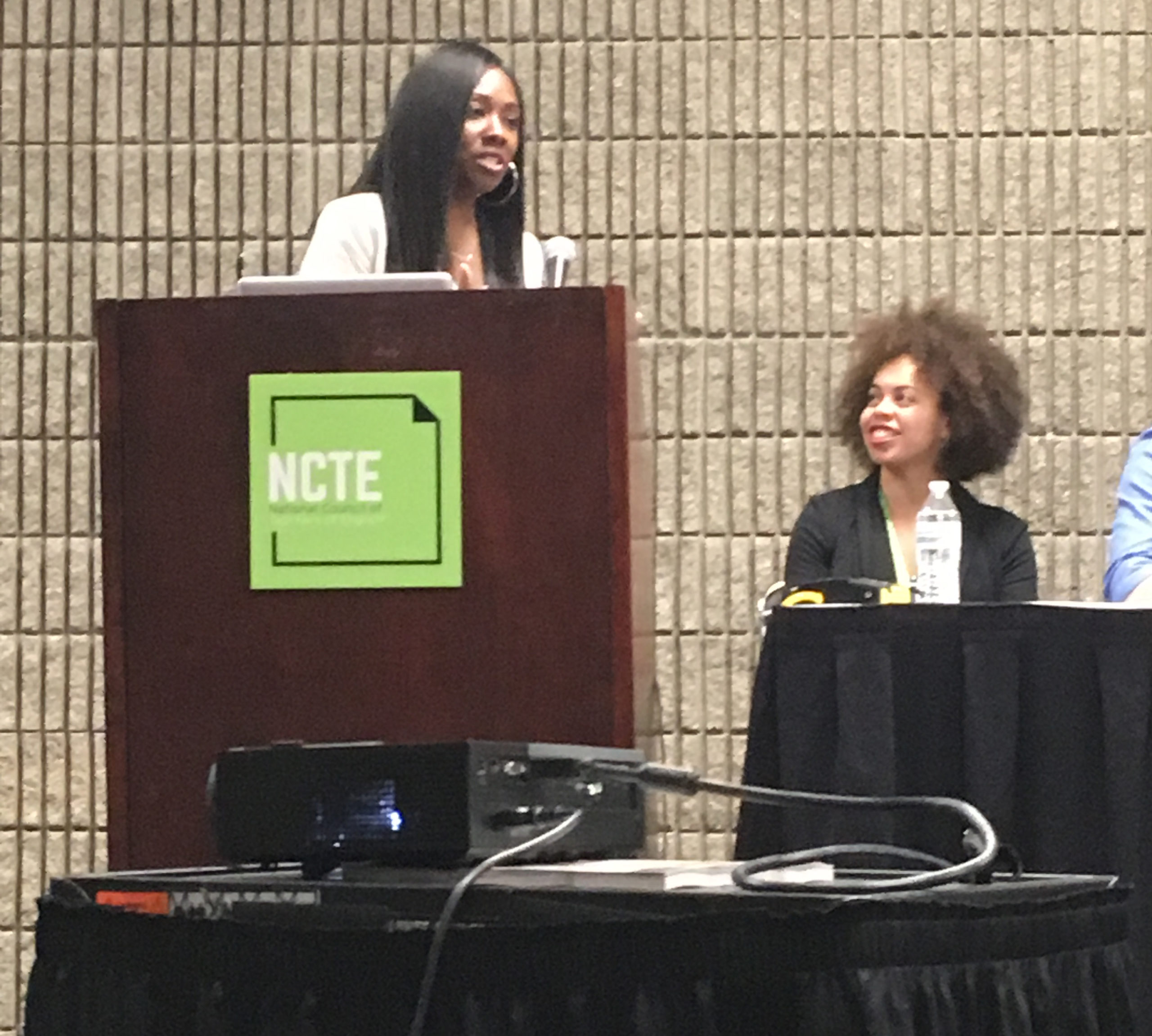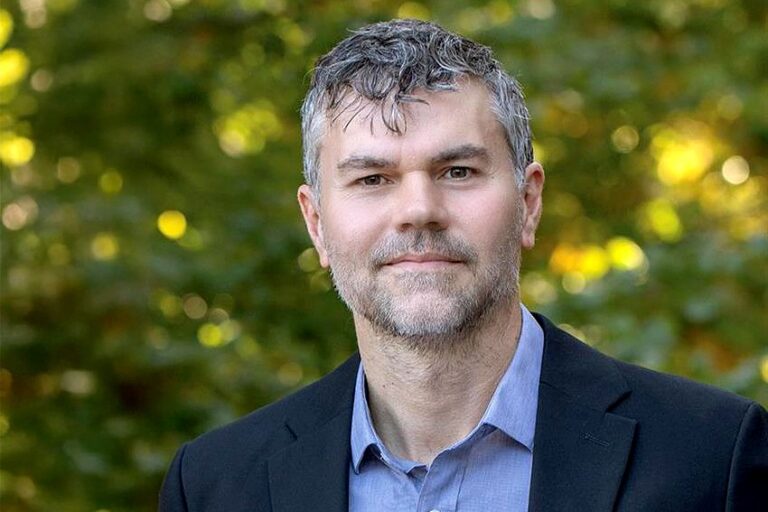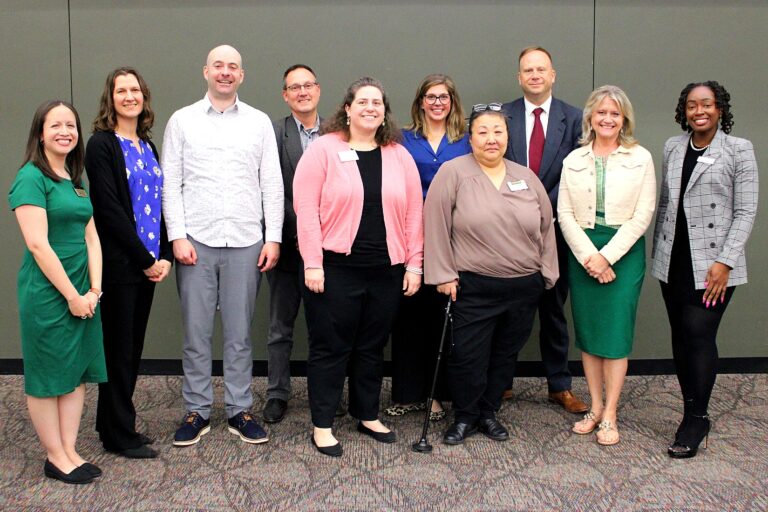A leading Michigan State University language and literacy scholar will extend her groundbreaking work in antiracist and anti-Blackness teacher education to pediatric medicine and public health with support from The Andrew W. Mellon Foundation.

April Baker-Bell, Associate Professor in the Department of English and Department of African American and African Studies, recently received a $218,000 Mellon New Directions Fellowship to support two new studies underway with the University of Washington. Baker-Bell is collaborating with medical doctors and researchers from the UW School of Medicine and Department of Pediatrics to develop, implement, and study an antiracist medical training that supports medical professionals with developing an antiracist praxis for confronting and reducing racial bias and anti-Blackness in the workplace.
Identifying Inequities
The Cross-Disciplinary Approach to Antiracist Medical Education was initiated by Baker-Bell in February 2020 after being contacted by the University of Washington and Seattle Children’s Hospital. A small team of medical doctors and researchers were seeking a scholar they could collaborate with who could bring unique scholastic expertise at the intersections of language, rhetoric, anti-Black racism awareness and antiracist pedagogy development and assessment, which is an expertise that is critically missing in the field of medicine and medical education.
The medical team saw a scholarly article by Baker-Bell about anti-Black linguistic racism — a term she coined to describe the type of linguistic oppression that is uniquely experienced and endured by Black Language speakers. The team also was interested in Baker-Bell’s book, Linguistic Justice: Black Language, Literacy, Identity, and Pedagogy., which was scheduled to be released a few months later.

“I had already been collaborating with the team of medical doctors for a few months when Jeff Grabill [Associate Provost for Teaching, Learning, and Technology] emailed me The Andrew W. Mellon Foundation’s call for limited submissions for the Fall 2020 New Directions Fellowship program. When I read that the program was prioritizing cross-disciplinary research that focused on issues of race, ethnicity, and migration, I thought it was a perfect opportunity for me to submit a proposal reflecting the research I was engaging in with UW School of Medicine,” Baker-Bell said. “I saw the New Directions grant as an opportunity for me to advance my research agenda, broaden my intellectual range, and position me as a leader in antiracist medical education.”
This project shows how scholars and educators in the humanities can extend their work into other sectors like medical, legal, business, and government.
Dr. Baker-Bell’s project is extraordinarily timely given how painfully COVID-19 has laid bare the racist inequalities in our medical and public health systems.
Justus Nieland, Professor and Chair of MSU’s Department of English
Justus Nieland, Professor and Chair of MSU’s Department of English, said Baker-Bell’s research trajectory positions her to take on the additional disciplinary training in medical education and public health. He remarked she is also poised to blaze new trails into society’s understanding of the effect of language and perception on the experiences of Black and Brown people.
“Dr. Baker-Bell’s project is extraordinarily timely given how painfully COVID-19 has laid bare the racist inequalities in our medical and public health systems,” Nieland said. “It’s a project whose urgency is clear given the ongoing national reckoning with racial injustice and the demands for all U.S. institutions to dismantle the systemic racism that undergirds them.”
Being in the Moment
Baker-Bell has steadily outlined two interconnected projects with the University of Washington. The first will apply artificial intelligence (AI) technology to assess and reduce anti-Blackness and racist curriculum content. The second will involve redesigning and developing curriculum focused on reducing bias in medicine and pediatrics. While originally intended for medical students, the workshops will start with medical executives and leadership, then roll-out to professionals and students across disciplines.

To prepare for this work, Baker-Bell will participate in a comprehensive continuing medical education program through the American Public Health Association (AHPA). The Mellon grant will fund her extra-disciplinary training in eight courses related to social justice, bias reduction, and racial equity in medicine, as well as coursework offered through the AHPA annual conference.
“As a humanities person, I’m learning so much about how medical professionals think and approach people and situations scientifically,” Baker-Bell said. “This cross-disciplinary collaboration will emphasize the need to understand social issues within the context of healthcare and to address healthcare inequities resulting from our social and political climate.”
This cross-disciplinary collaboration will emphasize the need to understand social issues within the context of healthcare and to address healthcare inequities resulting from our social and political climate.
April Baker-Bell, Associate Professor
Baker-Bell will begin her APHA courses in the fall. Her goal is to enhance her knowledge of the current efforts to reduce racial bias in the fields of public health and medicine and to better understand the gaps in knowledge about antiracism and anti-Blackness in medical education.
“It’s a great position to be in right now,” Baker-Bell said. “Because of the support of The Mellon Foundation, I’m able to learn more about the need for this type of cross-disciplinary work and to build and improve on what’s being done.”
Baker-Bell thanks Jeff Grabill for encouraging her to apply for the New Directions Grant and for the perspective provided by Associate Professor Karen Kelly Blake in the Center for Ethics and Humanities in the Life Sciences and Department of Medicine in pulling her proposal together. “This is the moment to be doing this type of work, when our most vulnerable Black and Brown communities have been so severely impacted by COVID-19,” Baker-Bell said. “It’s not a moment to move away from antiracist and diversity education because it’s been mischaracterized as divisive, but to move toward it.”


